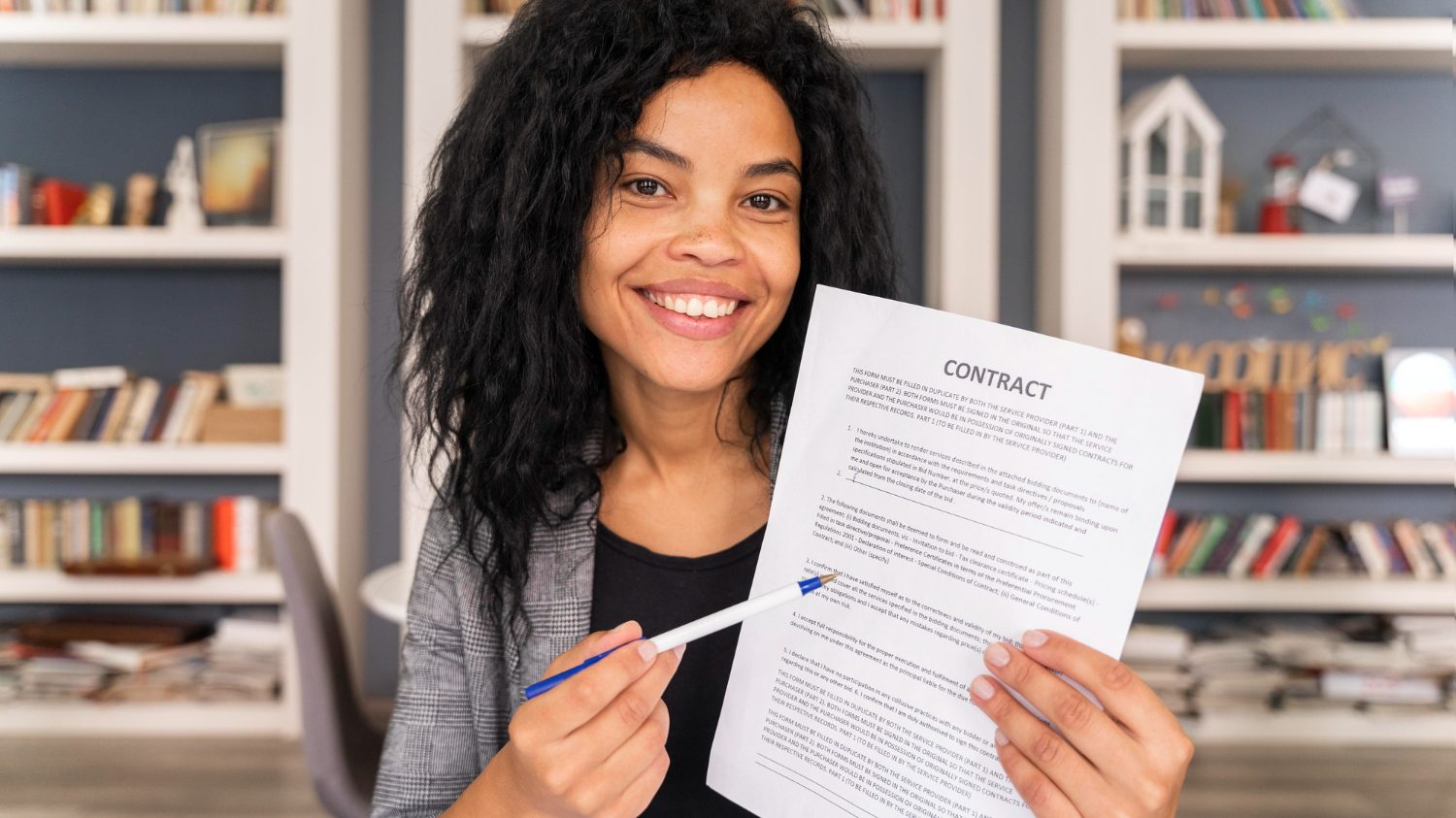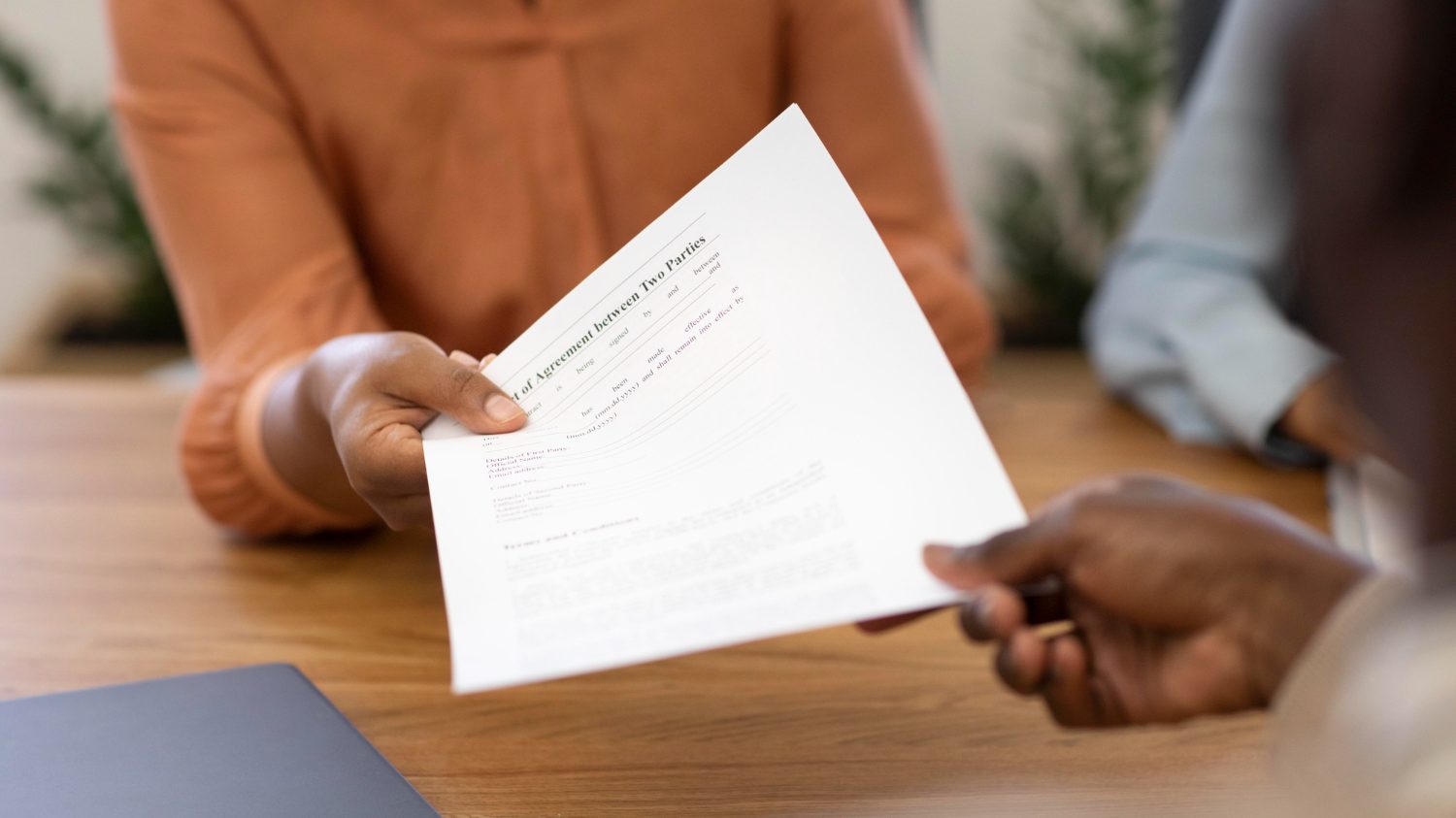Most people ask; How Long Should A Cover Letter Be? A good cover letter can unlock the doors of your job search. It’s your chance to tell the reader about yourself, highlight how you measure up on qualifications, and persuade an employer why they need you working for them.
However, one of the most frequently asked questions from job seekers is: how long should my cover letter be? And the fact is, there is no set answer to it. But it should be long enough to tell them what you can do for them, and short enough to compel them to read on.
The perfect balance can be the deal-breaker for your application. You can also consider a cover letter as an opportunity to tell a story — Your professional story. While your resume typically lists accomplishments in bullet points, a cover letter gives you the ability to connect those dots for your reader. That is, where you elaborate on how your experience and skills match the job.
A good cover letter is not about being long-winded, or trying to take up space – it is all about being direct, short and specific to the job. Inthis article, we will explore how long a cover letter should be.
Let’s dive in!

Source: Freepik
What Is the Length Of A Cover Letter?
Ideally, a cover letter should never exceed 250-400 words and can be fitted on one standard page. That way you can touch on the main points without bogging down the hiring manager. For paragraphs, stick to three or four. These should include:
1. An engaging introduction.
2. One to two body paragraphs that showcase your most relevant accomplishments.
3. An Engaging Conclusion With a Strong Call to Action
Respect the recruiter’s Time. Keep your cover letter short and focused. Hiring managers see dozens or even hundreds of applications. Almost all resume experts suggest keeping a cover letter short and to the point; lengthier cover letters are less likely to be read than their more-to-the-point counterparts.
Essential Elements Of A Strong Cover Letter
1. The opening paragraph
You want the reader to be drawn in right from the first couple of sentences. Mention the job you are applying for & your excitement about this.
This would be the ideal place to mention if someone referred you or if you have any connection to the company. The intention is to illustrate that you are authentic for the role and thus create a positive vibe.
For example:
Subject: Marketing Coordinator position
Dear Mr. Dares, I am writing to express my interest in your recently advertised opening for a Marketing Coordinator at XYZ Company. I like your unique approach to digital campaigns which aligns with my passion for powerful marketing strategies. Because of my experience in both content and analytics, I’m excited to help set your team up for success.
Your reader will appreciate this sense of enthusiasm while making it nails relevant skills on the first lines.
2. The body paragraph(s)
The content of your cover letter is where you can show what you got. In this section, you should expand on your accomplishments and how they fit into the position. Highlight one or two achievements that meet the needs of the company.
For example:
“As a Social Media Manager at ABC Corp, I successfully boosted engagement by 35% in just six months through targeted content strategies driven by data.
Another example is when I led a cross-platform campaign that delivered a 20% increase in brand awareness, which proves my ability to drive measurable results.”
This paragraph gives your achievements a number and compares yourself against relevant statistics. Metrics help to turn your work into an experience people remember.
When addressing the skills or experiences from a job description, please be sure to answer those directly.
For example, if you read in the section about the company that they are fond of collaboration, you could write:
“Working with cross-functional teams has been a significant part of my work life. Through constant collaboration with designers, writers, and developers I was able to deliver all projects on time and beyond the client’s expectations.”
3. The closing paragraph
The last part of your summary and reflection is the conclusion. Thank the employer for their time and end with a clear call to action.
For example:
_If I am hired, I will bring my passion for XYZ Company to be a part of your team.) Thank you for your time and consideration of my application. I would be glad to talk about the fit of my skills and experiences to your needs. Hope to hear from you soon.”
This closing paragraph is courteous, and professional and keeps the conversation open.

Source: Freepik
Factors That Determine How Long Your Cover Letter Should Be
1. Industry norms
Expectations of a cover letter vary from industry to industry. However, if you want a personal and expressive letter, that may be welcome in creative fields like design or media.
However, for corporate or technical roles, a simple straight-to-the-point CV works.
Thankfully though, you can research the company or industry and at least get a general idea of what is appropriate. When in doubt, be brief but make sure you hit all the major points.
2. Experience level
How senior you are can also determine your cover letter length. If you just graduated, you might not have as many things to share.
Emphasize academic results, internships & transferable skills
More seasoned professionals may struggle to strike the right balance between listing several career highlights and keeping it concise.
Always make sure that you highlight the accomplishments which are in line with the specific role.
3. Role complexity
For highly specialized positions, you may want to go into a little more detail on your skills. A senior engineer who is applying to move up into a leadership position, for instance, may need to get more specific about technical projects or management experience.
How Long Should A Cover Letter Be?: Common Mistakes To Avoid
1. Writing too much
But if the cover letter is too long it tends to diffuse their thrust. Be concise and delete everything that does not directly contribute to your application.
2. Repeating your resume
Your cover letter should complement, not duplicate your resume. Utilize it to elaborate more on critical accomplishments and demonstrate their relevance to the role.
3. Using generic language
Words and phrases like “I work hard” or “I’m sure I’m a good match” offer next to nothing. Rather, make your assertions specific and illustrate them with examples.
4. Neglecting to tailor your letter
Employers will be able to tell if you are sending the same cover letter to everyone, and that’s not great for your chances. Therefore, make sure you are personalizing your letter for every application by mentioning the company’s mission and values.

Source: Pexels
How To Write A Short Cover Letter: Practical Tips
- Focus on relevance: Highlight the main job requirements from the description and respond to them in your letter.
- Use short sentences: Your sentences should be short and easy to read. Steer clear of excess jargon or overly complex vocabulary.
- Format for readability: Choose a professional font such as Arial or Times New Roman 10–12 range Indent paragraphs and maintain a 1-inch margin of spaces for a neat, professional look.
- Edit ruthlessly: Resting for a while before going over its draft. Pay attention to superfluous phrases, grammatical mistakes and opportunities to sharpen your language.
Sample Cover Letters That Work
Example 1: recent graduate
“Dear [Hiring Manager],
Dear ABC Corp, I am excited to apply for the position of Junior Data Analyst. I practised using Python and SQL by working on real-life projects through my degree in Data Science. As my capstone, I created a predictive model with 92% accuracy through social media trend analysis, and I would love to have a chance to apply this analytical way of thinking to your team.
I appreciate your taking the time to consider my application. I hope to talk with you about how my profile can meet your requirements.
Sincerely,
[Your Name]”
Experience 2: any other professional
“Dear [Hiring Manager],
Having worked for over eight years in tech, I was excited to come across the listing for Senior Project Manager at XYZ Company. In my current position, I have delivered projects on time and below budget by leading cross-functional teams achieving a 15% cost reduction for the year 2023.
I love a fast-paced workplace, and aligning teams to the mission of an organization.
The opportunity is humbly appreciated. I would love to have a conversation about how I might add value to your company.
Best regards,
[Your Name]”
Read also: A Day in The Life of a Business Analyst – Duties and Responsibilities
Wrap-Up: How Long Should A Cover Letter Be?
A cover letter is more than just a formality, it allows one to make a connection with the potential employer. In that manner only you can respect the travel time of the recruiter and interest in the role.
After all, you are not here to share your entire career; only the key parts that make sense for this role. Even if someone has the same qualifications, a cover letter can help you stand out. Do your homework about the company and role, then write a letter targeted to the employer.
If you strike the perfect balance between personal and professional in your cover letter, you know it could be able to take you to the next opportunity.
